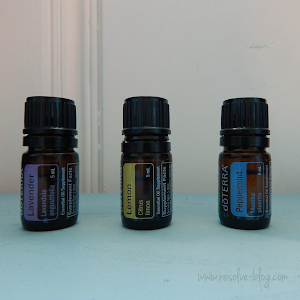I attempted to read the letters on the screen. I covered one eye, then the other, reading again and again.
Then I heard words I thought could never possibly apply to me in my lifetime:
"Good. 20/15."
20/15? Me? What kind of joke is this? I wasn't convinced 20/20 was possible for someone as blind as me, and it would have been more than enough. But it's real. I can see—on my own!
 |
| I can't believe I've really, finally kissed these goodbye. |
Prior to my procedure, I scoured the internet for blogs to glean any information possible and to get an idea of what to expect—particularly in terms of recovery. I found many negative experiences that only served to scare me, but did find one good bit of advice which led to my last minute decision to get a second opinion (and then change providers just 3 days before the scheduled procedure).
I know others are likely lurking around looking for tips and answers just like I was. The bottom line is this: I would do it again in a heartbeat. I am thrilled with my results, and currently my only remaining side effect is the "halos" at night, which should ease with more time.
 |
| Nice knowing you, glasses. Except it wasn't. |
Of course, what I really wanted to know was what to expect during recovery—7 days in the case of PRK. Here are my top tips to make the most of it (it's worth it, I promise!):
1. Prepare for Light Sensitivity
I love sunlight and my house is full of it. I knew that immediately after my procedure, I was to go home and take a nap. I knew I would be sensitive to the light, but I didn't get just how sensitive. I went straight to my bedroom where the light crept through the blinds covering our bay window. I love that window, but on surgery day, it was my nemesis. So was the guest room with the navy blue gauzy curtains drawn shut. I was squinting so hard, I was adding to the pain and giving myself a headache. The whole sunny house was suddenly my nemesis and I felt like I had nowhere to go to rest.Eventually, Sean kicked McHenry out of his basement den (there's one tiny window that Sean was able to block) and I spent the remaining sunlight hours down there on a futon.
The moral of the story? Light sensitivity means ALL light. Set up the darkest cave possible for resting in the first day or two (all the better if the room is window-less). Even better, get your procedure done in the abysmal months of November–February when the sun is setting at 5 PM and you have fewer hours of light to worry about. January worked perfect for me because once I was back to work, I could drive home just before dark (the night vision halos are real, guys).
2. Treat Your Recovery as Such
All the things you do when you're trying to keep your immune system happy during cold season? Keep those up in the days leading up to and following your procedure: drink plenty of water, get an appropriate amount of rest (the more, the better!), and be sure to have enough vitamin C. Keeping your body healthy makes healing quicker and easier.
3. Trust the Holistic Remedies
My doctor suggested that Omega 3 (fish or flaxseed oil) were beneficial to eye health. I mentioned that I was already taking flaxseed, and he suggested increasing my dosage until a few months post-op to help accelerate healing. I'm guessing it helped, since in both follow-up appointments, I've progressed better than expected (full disclosure: I was really expecting a much longer and harder recovery due to how high my original vision prescription was). Another comforting "crunchy" remedy was my bedside my essential oil diffuser with a blend of lavender, lemon, and peppermint.4. Keep Comfortable
Recovery requires lots of artificial tears. I needed them hourly for the first week and at least 4x/day after this. My doctor suggested storing them in the fridge for an extra nice sensation. The coolness feels so nice on dry, scratchy eyes!5. Follow Directions Completely
I know this one sounds obvious, but just like with antibiotics, some patients think they're doing well enough to not complete what was prescribed. There are a lot of eye drops and instructions to keep up with, but do it. The pros do thousands of these procedures and know what is best for a full recovery. Finish each drop as prescribed, always wear sunglasses outdoors during daylight, and heed any other instructions noted such as restrictions on water, eye rubbing, or cosmetics.Have you had PRK or Lasik? What is your best tip for recovery?






This is very great tips!. Your article about top-5 prk and lasik tips and tricks is really informative. Your post increase my knowledge about lasik surgery. With your permission I want to make your article as a reference. Thank you very much for your explanation. laatjeogenlaseren.nl
ReplyDelete